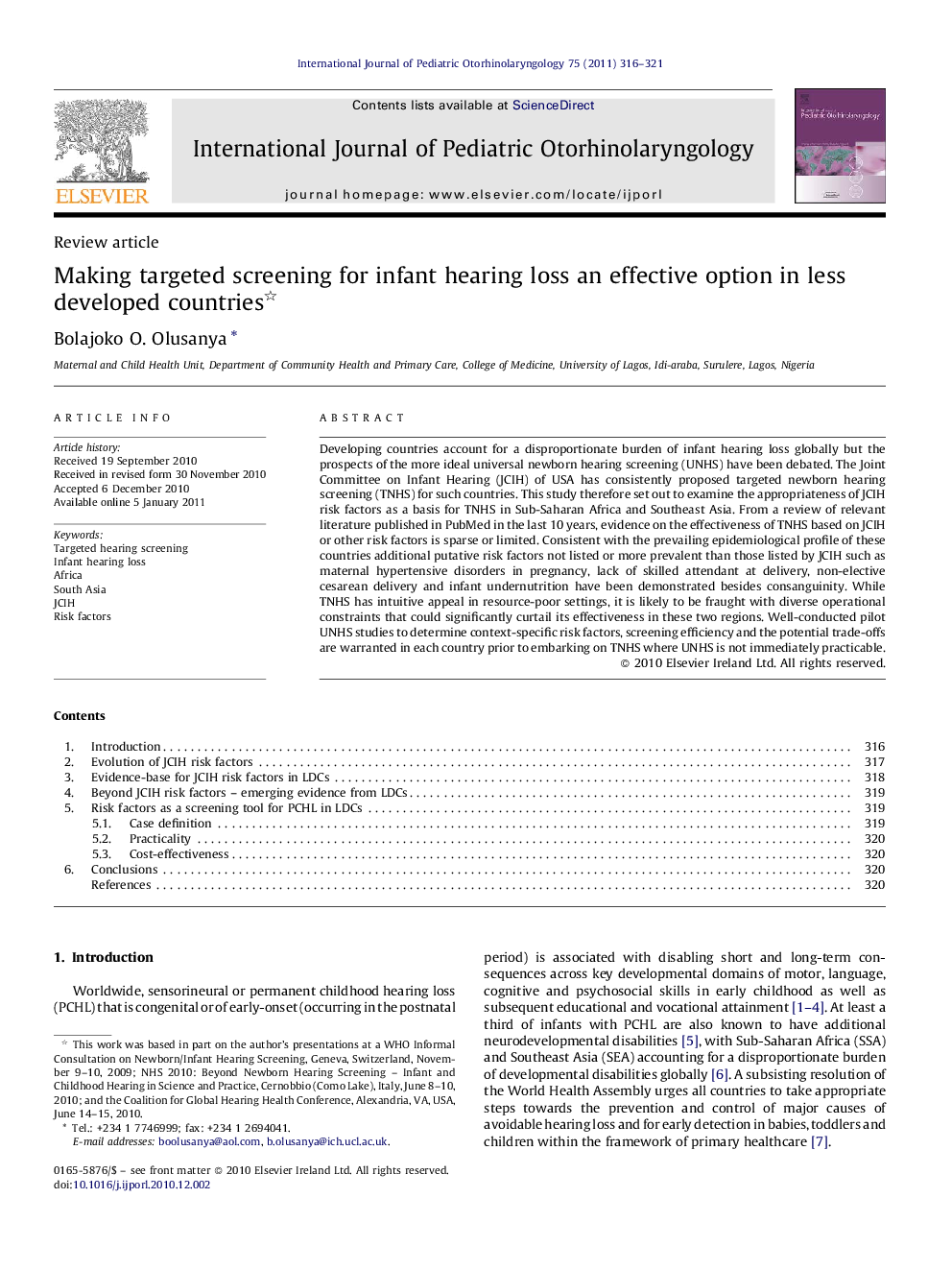| Article ID | Journal | Published Year | Pages | File Type |
|---|---|---|---|---|
| 4113885 | International Journal of Pediatric Otorhinolaryngology | 2011 | 6 Pages |
Developing countries account for a disproportionate burden of infant hearing loss globally but the prospects of the more ideal universal newborn hearing screening (UNHS) have been debated. The Joint Committee on Infant Hearing (JCIH) of USA has consistently proposed targeted newborn hearing screening (TNHS) for such countries. This study therefore set out to examine the appropriateness of JCIH risk factors as a basis for TNHS in Sub-Saharan Africa and Southeast Asia. From a review of relevant literature published in PubMed in the last 10 years, evidence on the effectiveness of TNHS based on JCIH or other risk factors is sparse or limited. Consistent with the prevailing epidemiological profile of these countries additional putative risk factors not listed or more prevalent than those listed by JCIH such as maternal hypertensive disorders in pregnancy, lack of skilled attendant at delivery, non-elective cesarean delivery and infant undernutrition have been demonstrated besides consanguinity. While TNHS has intuitive appeal in resource-poor settings, it is likely to be fraught with diverse operational constraints that could significantly curtail its effectiveness in these two regions. Well-conducted pilot UNHS studies to determine context-specific risk factors, screening efficiency and the potential trade-offs are warranted in each country prior to embarking on TNHS where UNHS is not immediately practicable.
